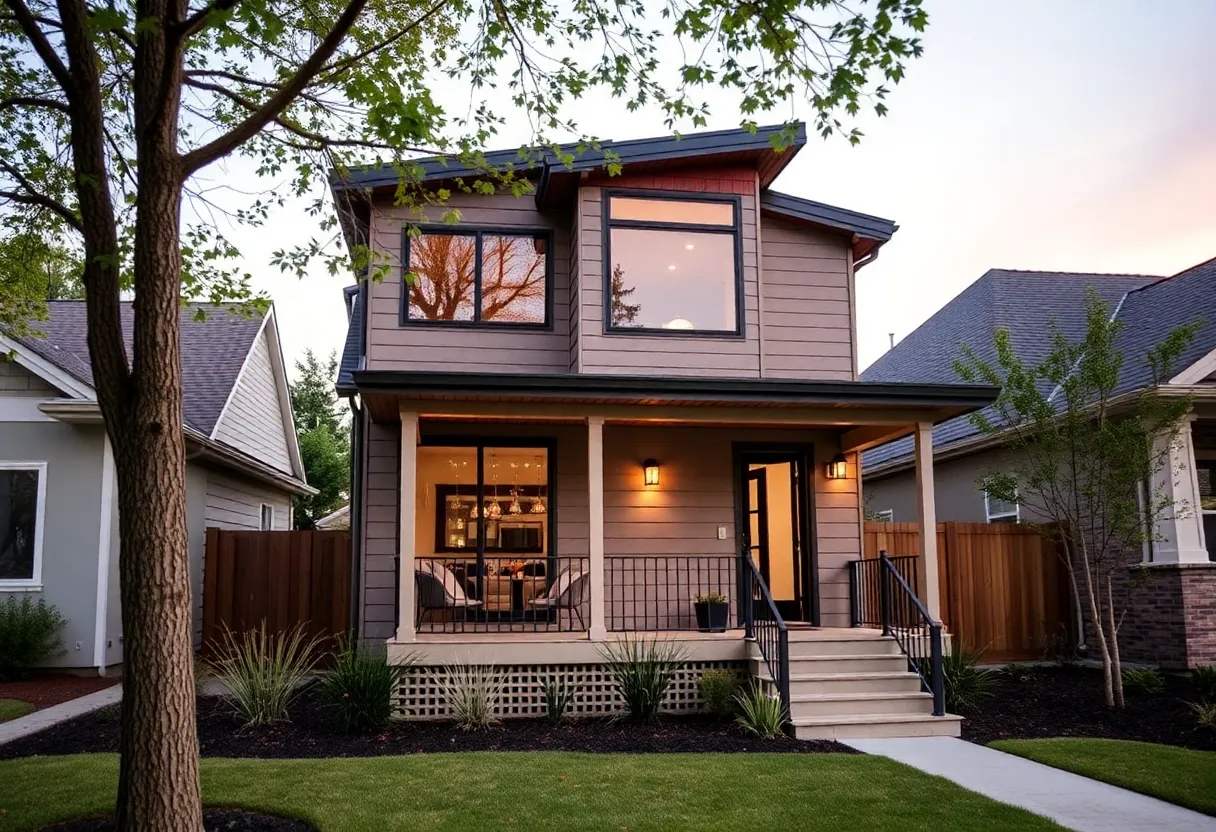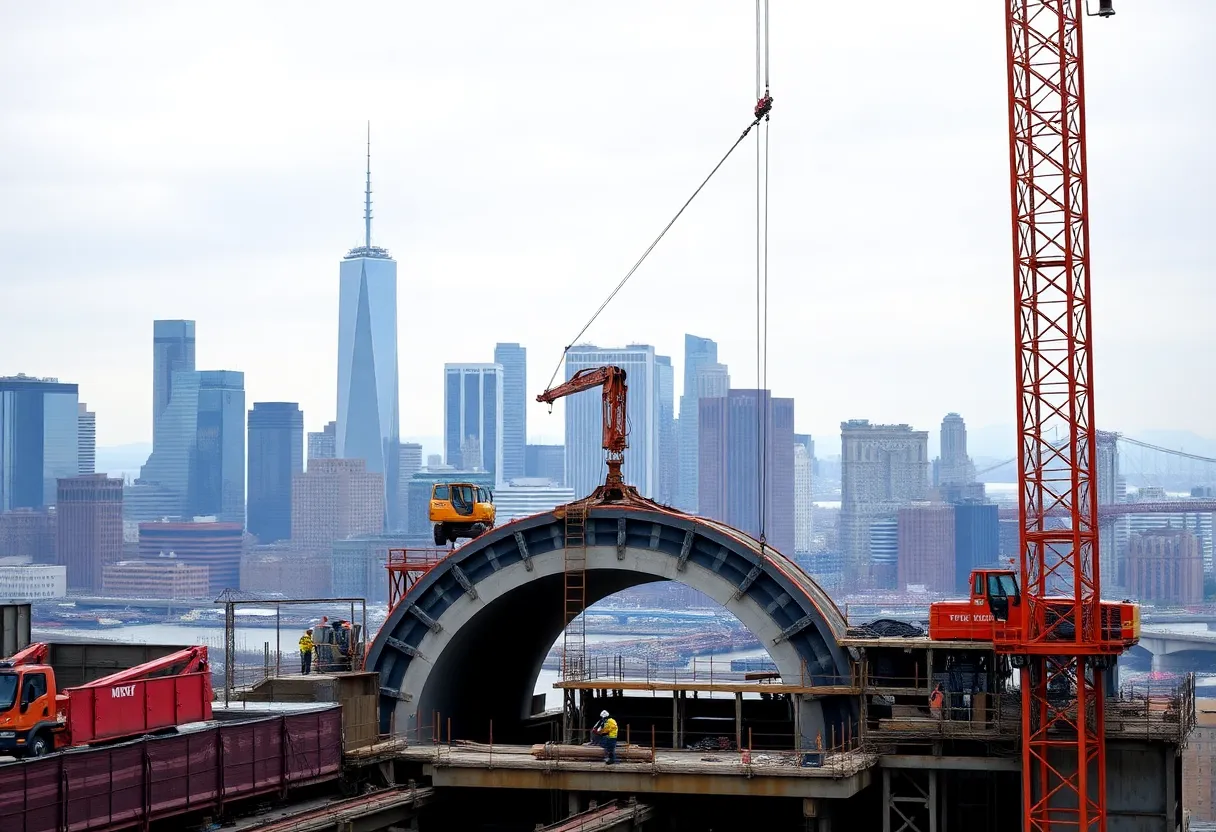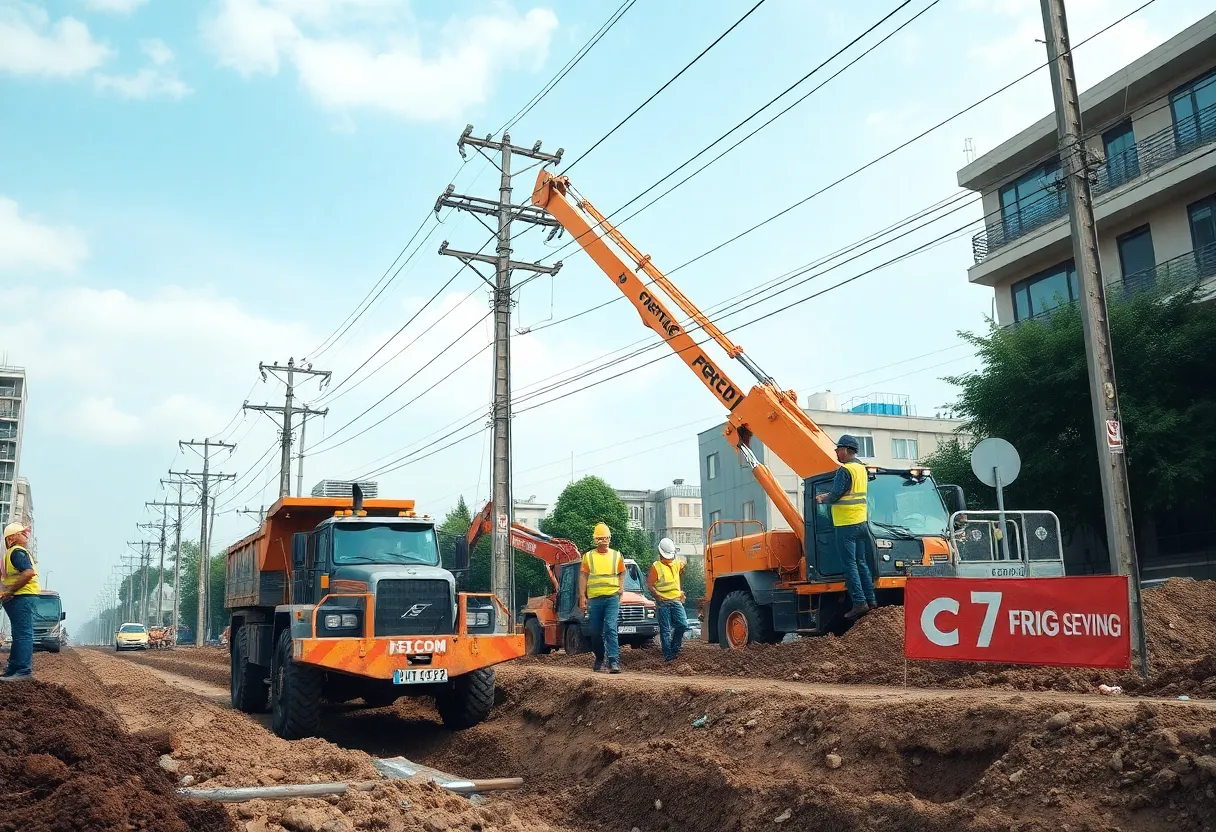News Summary
The SUPPLY Act, a bipartisan initiative in the U.S. House of Representatives, seeks to assist homeowners in building Accessory Dwelling Units (ADUs). This act aims to provide financial support through government-backed second mortgages, facilitating affordable housing options for lower and middle-income families. As cities grapple with housing shortages, the SUPPLY Act aims to simplify mortgage processes and promote ADUs as a solution to escalating housing costs, while also highlighting the economic benefits homeowners can gain from such constructions.
Bipartisan SUPPLY Act Introduced to Aid Homeowners in Constructing Accessory Dwelling Units
A new bipartisan bill dubbed the Supporting Upgraded Property Projects and Lending for Yards (SUPPLY) Act has been put forth in the U.S. House of Representatives, designed to help homeowners build Accessory Dwelling Units (ADUs). Aimed at assisting low and middle-income families, the legislation seeks to provide financial support for the construction of these smaller housing units amid a worsening national housing shortage.
The SUPPLY Act proposes that homeowners be able to secure a second mortgage to fund the building of ADUs, which will be fully backed by the government. Traditionally, many have needed to draw on savings or take out home equity loans for such projects, making the new bill a significant shift in available funding options.
The bill’s authors are Representatives Sam Liccardo, a Democrat from California, and Andrew Garbarino, a Republican from New York. The introduction of the SUPPLY Act aligns with broader efforts to mitigate the national housing crisis, aiming to encourage the construction of more affordable living spaces.
Understanding Accessory Dwelling Units
An Accessory Dwelling Unit is a smaller, independent living space situated on the same lot as a single-family home. Typically ranging from 150 to 1,200 square feet, these units can be tailored to include high ceilings, large windows, and modern European appliances. ADUs are often viewed as a practical solution to the growing affordability crisis in housing, costing between $100,000 and $300,000 to construct, influenced by costs such as permits and inspections.
With current restrictions on ADU construction in many cities, the SUPPLY Act does not propose changes to these regulations. However, the increasing interest in ADUs indicates that many homeowners are still navigating these challenges to create more living space.
The Case for ADUs
Many homeowners, particularly among the aging population, have found ADUs invaluable. For instance, Christine Wilder-Abrams, at the age of 72, constructed an ADU in her backyard in Oakland, California, after facing difficulties with stairs in her multi-story home. She financed her 560-square-foot ADU for around $350,000, offering a solution to their housing needs as her daughter moved back into the family home.
As of October of this year, the median home sale price in Oakland was recorded at $751,455, highlighting the economic benefits that ADUs can provide both to families and to homeowners looking to increase property value. Reports indicate an average increase of around 62% in a property’s value when an ADU is built, elevating the median appraised value of homes with ADUs in California to $1,064,000 as compared to $715,000 for homes lacking such units.
Growing Popularity and Support for ADUs
The trend of constructing ADUs has seen significant growth over the years, with urban data revealing that ADUs represented 8% of building permits in California in 2018, expanding to 18% by 2022. Many homeowners have also turned to state programs, such as California’s Accessory Dwelling Unit Grant Program, which offers grants as high as $40,000 to support the development of these units. Additionally, initiatives like the Keys to Equity program have been launched to aid Black and low-income families in Oakland with their ADU projects.
As housing costs continue to escalate, the rising interest in terms like “granny pods,” small units for elderly family members, reflects the increasing demand for affordable housing solutions. The SUPPLY Act introduces a new avenue for fostering community growth while simultaneously addressing pressing housing needs.
Overall, the bipartisan effort behind the SUPPLY Act marks a significant step in the quest for expanding affordable housing options across the nation and may pave the way for a more accessible housing market for future generations of homeowners.
Deeper Dive: News & Info About This Topic
Additional Resources
- Business Insider: Building ADUs in Backyards
- Wikipedia: Accessory Dwelling Unit
- NBC Bay Area: California Law Scammed ADU Buyers
- Google Search: Accessory Dwelling Units
- SF Chronicle: ADUs Return on Investment in Bay Area
- Encyclopedia Britannica: Accessory Dwelling Unit
- Business Insider: ADUs and Improved Lives
- Google Scholar: Accessory Dwelling Units
Author: Construction NY News
The NEW YORK STAFF WRITER represents the experienced team at constructionnynews.com, your go-to source for actionable local news and information in New York and beyond. Specializing in "news you can use," we cover essential topics like product reviews for personal and business needs, local business directories, politics, real estate trends, neighborhood insights, and state news affecting the area—with deep expertise drawn from years of dedicated reporting and strong community input, including local press releases and business updates. We deliver top reporting on high-value events such as the New York Build Expo, infrastructure breakthroughs, and cutting-edge construction technology showcases. Our coverage extends to key organizations like the Associated General Contractors of New York State and the Building Trades Employers' Association, plus leading businesses in construction and real estate that power the local economy such as Turner Construction Company and CMiC Global. As part of the broader network, including constructioncanews.com, constructiontxnews.com, and constructionflnews.com, we provide comprehensive, credible insights into the dynamic construction landscape across multiple states.





